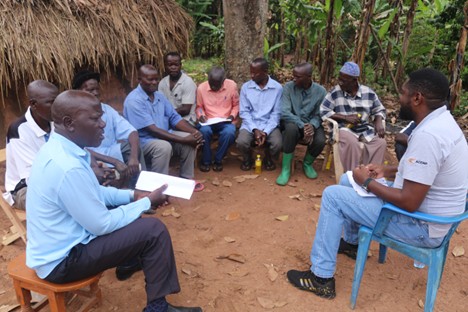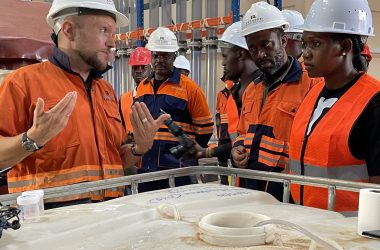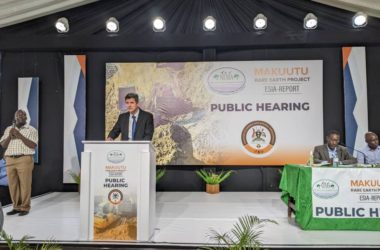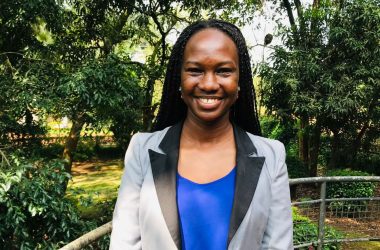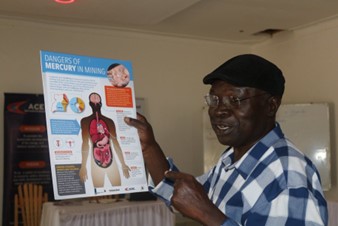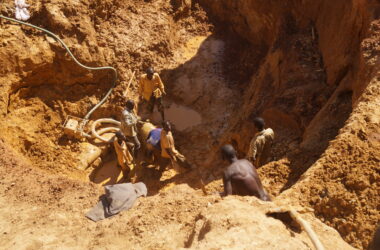Nawanvubu village in Buwaaya Sub County is nestled eight kilometers from Mayuge Town, in Mayuge district off the Kampala -Tororo Highway. Like many trading centers in Busoga region, it’s hardly a vibrant dwelling, only dotted with a cocktail of low-cost commercial buildings and rentals. I
Mayuge is one of the four districts straddling the 44 Km stretch licensed to Rwenzori Rare Metals for the Rare Earth Elements Makuutu Project. The sheer magnitude of the project, and the fact that it is the first of its kind in the entire country, is cause for anxiety among the affected community. But for the young people, the fear of displacement and uncertainty about future employment opportunities lingers, despite many of them not owning land in the area.
PLEXII talked to a group of youth in Nawanvubu trading centre to understand their feelings about the project and discovered a consistent negative narrative woven mostly out of misinformation. “No one is ever going to remove me from this land; this is my home and no amount of coercion will move me,” says a burly Ashraf, a boda boda rider. Ashraf finds the conversation midway and budges in with accusations against the company for intending to evict people.
Before his arrival, his colleagues had been sharing raw emotions about feeling left out of the project.
“Every time there are sensitisation meetings about the project we are not allowed to speak. When you raise your hand they will say that one, NO!. It is as though they have been already told we’re trouble causers,” claims Mohammed.
Mudhasi Faisal, in his mid-20s, ponders on how uncomfortable it would be to leave his childhood home and start afresh elsewhere. A number of them almost express doubt about the company restoring the land at the tail end of the project for the locals to be able to return and use it.
With hindsight of the meticulous steps and procedures Rwenzori is taking to inform, educate and prepare the project affected people, one can’t help but become curious as to the intent behind these accusations.
The Rwenzori Community Liaison Officer later reveals what he says is a familiar trend among the youth- their adamant attitude towards the project. Many of these young people do not own land and do not think they stand a chance to secure employment in the project. The fear of having to leave their land at some point to start afresh elsewhere shapes their attitudes. Many wonder what would happen if they refused to leave at all even if they are being compensated.
They seem to hypothesize all sorts of scenarios in the event that actual miming starts.
Later, the PLEXII team sought the opinion of the area LC 1 Chairperson, Isabirye Siraje Tenywa, on the allegations by the young people. Tenywa, in his 60s, is taken aback by the sentiments, offering an explanation.
“We have regular interactions with the Rwenzori Rare Metals people and those boys’ parents do sit in the consultative meetings. What you are telling me is very surprising because they know everything.”
Tenywa however notes that their disillusionment stems from the fact that they feel left out because they mostly do not own land.
“I know that the majority want their parents to give them their share of land so they can also be compensated individually,” he says. He notes that this is a widespread issue in their village that has youths agitated about impending resettlement.
Rwenzori Rare Metals is yet to embark on land valuation, compensation and voluntary resettlement of the project affected people. Despite what appears a long agonizing wait for the young people, the company’s Liaison Officer says the company has frequent engagements with the community regarding any developments and that prior communication is made at least two weeks in advance of an impending activity.
“We have grievance committees in all the four districts of Mayuge, Iganga, Bugweri and Bugiri. These committees run right from the local council level to the sub counties and the district. These are all levels of addressing concerns,” he says.
For now, it appears the company must be intentional in engaging the youth and interesting them in the various opportunities the Makuutu Project will present, even for those without land in the project area. What will continue to be a challenge, however, is the deliberate misinformation by different actors, including some selfish politicians, particularly in the age of social media.

